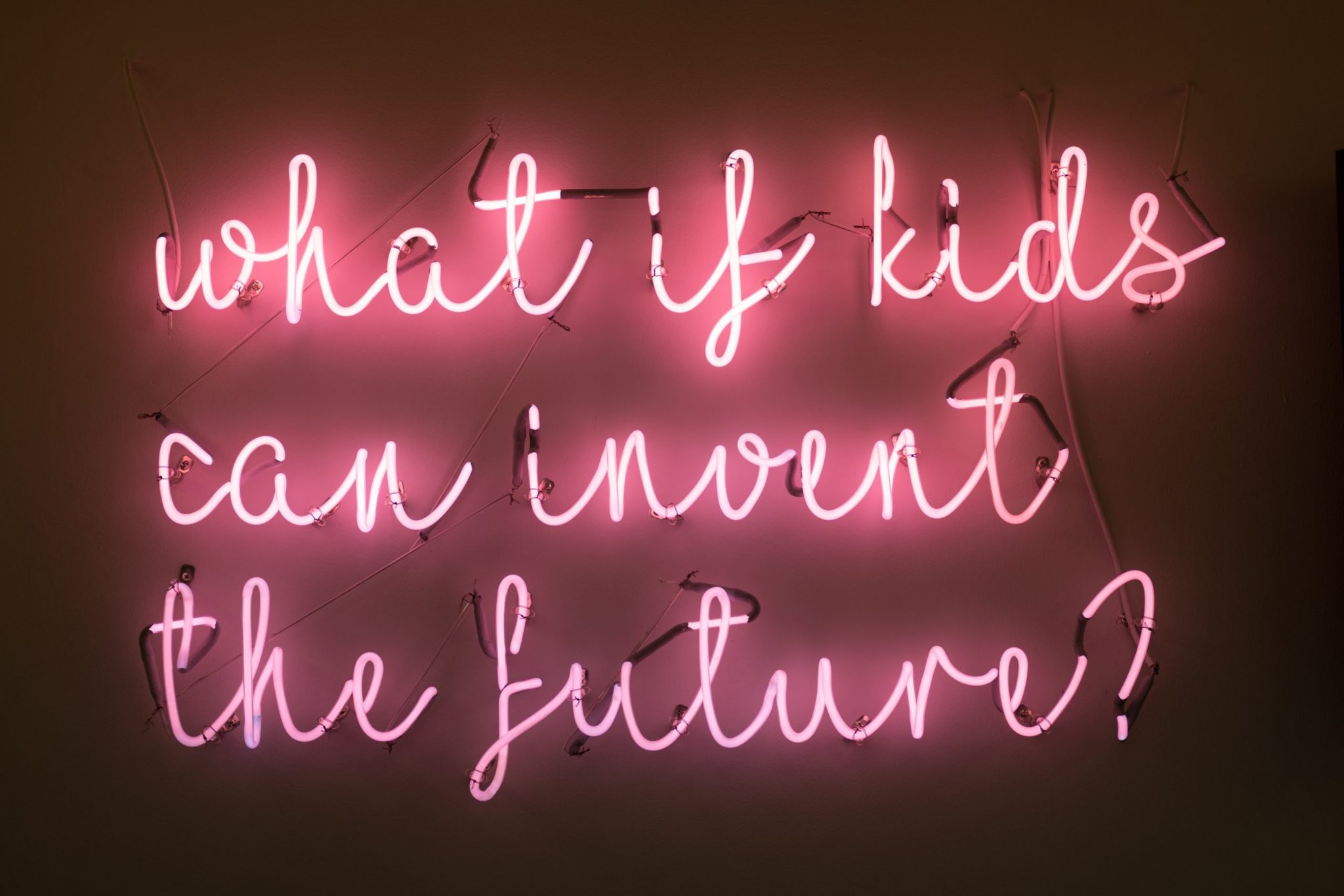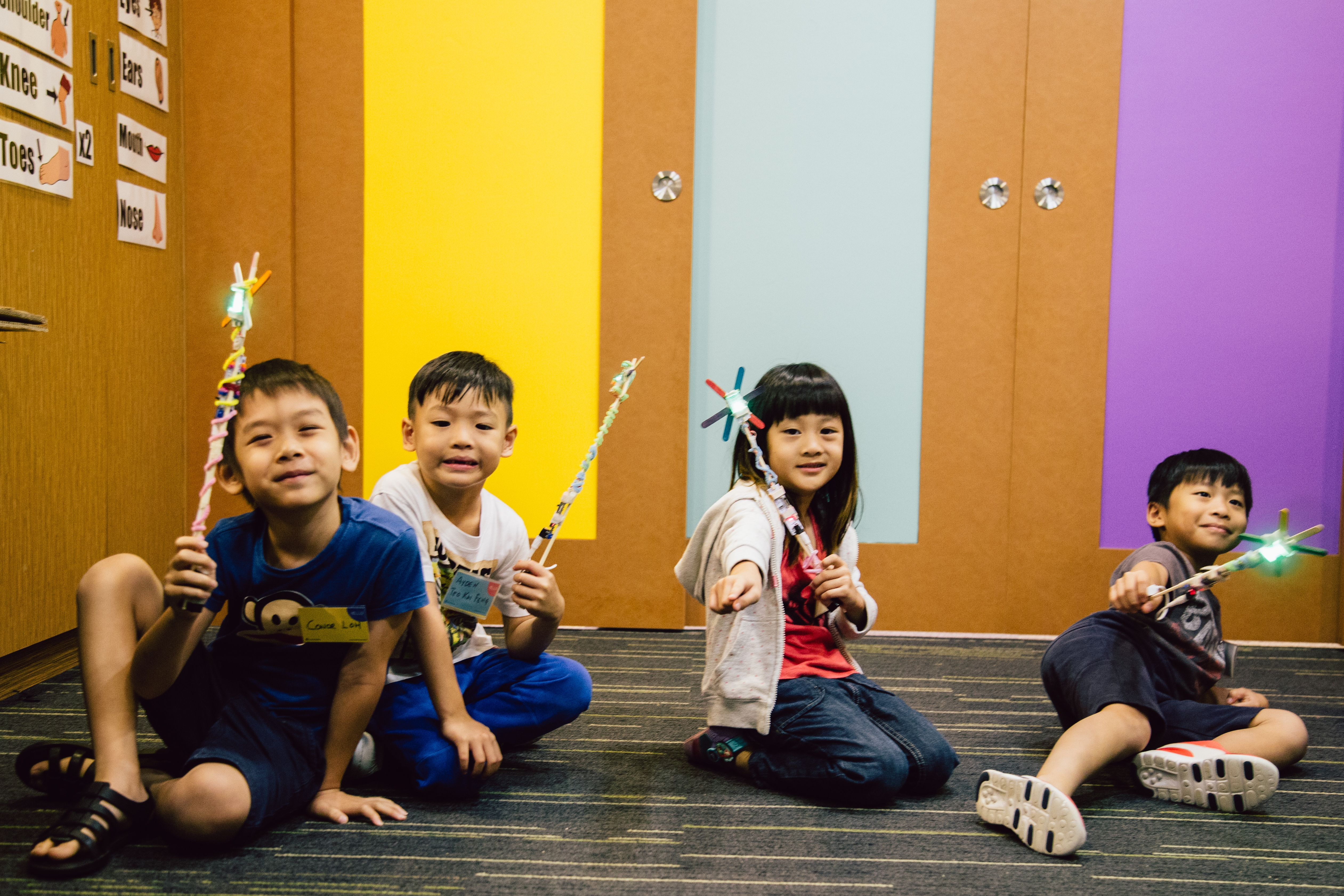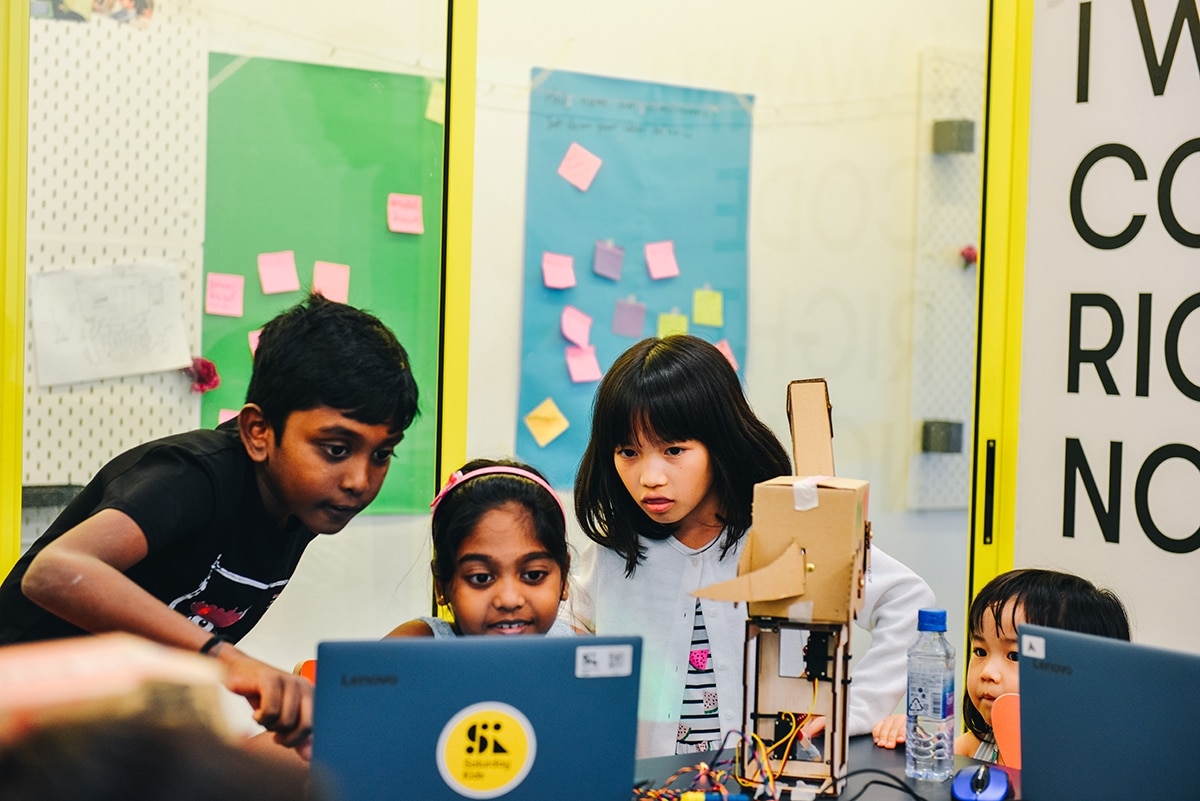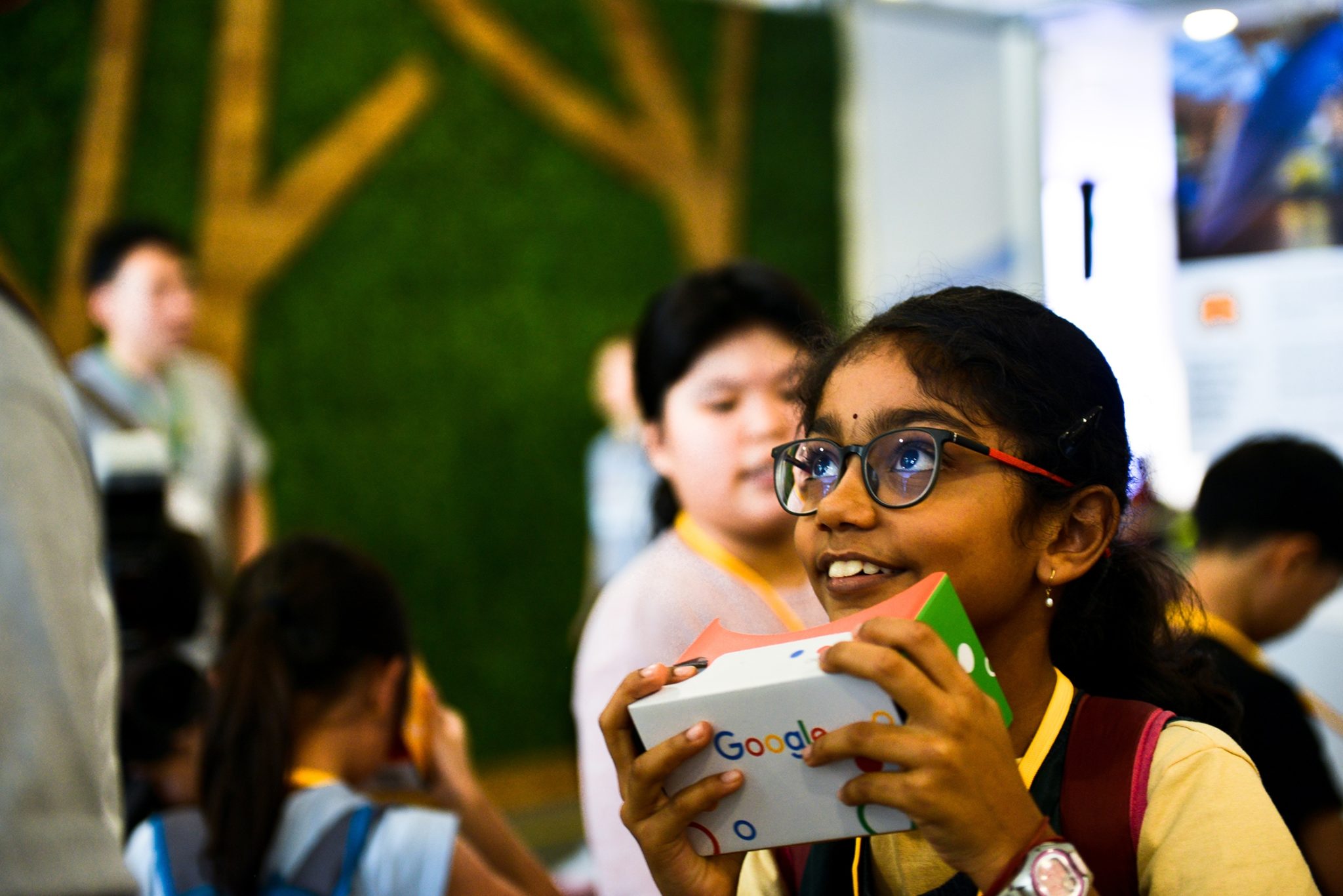Saturday Kids at 8: An Impact-driven social enterprise creating access and opportunity in digital literacy
August 27, 2020

This past July, Saturday Kids turned 8 years old. At this juncture, I thought it’d be timely to catch you up on where we’ve been in the last few years, where we hope to go (with your help), and why.
From a coding school to a curiosity school.
Saturday Kids opened as a side project in 2012 when I first started dabbling in tech investing. Meeting tech entrepreneurs all day made me realise how useful it is to know how to code, so I started a coding school for kids because cause there weren’t any back then.
These days, I call Saturday Kids a curiosity school rather than a coding school because the goal isn’t to churn out software engineers. The goal is to inspire every child to become a curious, self-directed learner.
Inspiring curiosity is at the heart of everything we do at Saturday Kids. We like to think we are making a stand against tuition and parents’ obsession with grades.

The world’s facing unprecedented challenges, and we need to raise more mavericks to take them on.
It scares me that parents my generation are telling their kids the same thing my parents told me—study hard, get a good job, life is taken care of.
I worry kids in Singapore grow up with a sense of entitlement, thinking that someone owes them a well-paying job just because they did well in school.
I worry kids are so busy cramming for tests and exams they haven’t heard of Greta Thunberg and climate change.
Most of all, I worry kids from disadvantaged backgrounds don’t get the same opportunities in life and therefore are trapped in that narrative of study hard, go to college on a scholarship, get a good job.
I have nothing against ‘good’ jobs; but the fact is technology is disrupting so many industries that very few people can predict what sort of jobs kids will have in the future, or what will constitute a ‘good’ job at all.
In Singapore for example, our city’s success is built on a professional class of bankers, lawyers, accountants. But for Singapore to continue to thrive, we cannot just be providers of professional services. Many white-collar jobs in finance, law, even medicine will be automated into obsolescence.
The world is facing unprecedented challenges—environmental, social, political. Our generation is not going to solve all of these problems. It is up to our kids and the generation(s) after them to come up with the solutions that will ensure humanity continues to thrive.
To thrive and to remain relevant, more kids need to think like entrepreneurs and makers, with the curiosity, enterprise and imagination to take on humanity’s challenges.

Next, we’re focussing on using code to create access and opportunities so that every child has the chance to use tech to change the world.
After 8 years, we’ve learned a thing or two about teaching kids how to learn. We’ve also learned a lot about inequality – whether arising from gender, urban poverty, or infrastructure poverty.
President Obama once said, “Life isn’t always fair. It distributes opportunities in different ways.”
As we grow beyond our 8 years, the keyword we’re focussing on is opportunity. Creating opportunities for those on the ‘wrong’ side of the divide, and putting in the groundwork to ensure that opportunities are distributed more fairly in years to come.
That’s what our social impact programmes like Code in the Community, Coding Cats, and Project Empower, and initiatives like Pay it Forward are all about.
As we continue building on these programmes, it’s also our hope that children from disadvantaged backgrounds are afforded the same opportunities to use their imagination to tackle problems like climate change.
We’ve seen from the tech industry that diverse problem-solvers make for richer, more comprehensive products and solutions. By investing in bringing a diversity of voices and experiences to the table, we’re investing in a future that’s not only more inclusive, but better for everyone.
That’s why after focussing on creative coding for 8 years, we’re now expanding our ambition to get kids excited about applied coding: applying code to projects grounded in the context of the real world. We’ve gotten started with Code Meets World, a year-long pilot for kids ages 10-12 to use code to explore, analyse and communicate the big questions and ideas shaping the world. In the first phase of the programme, we’ve seen kids still in primary school code websites and wiki pages about issues they’re concerned about, like plastic pollution and COVID-19. With 3 modules to go and lots more to learn, we’re excited about where their curiosity will take them as they venture into data visualisation, animations, and other web-based projects.
Beyond building more products like Code Meets World, we are committed to access and developing sustainable channels to ensure that it’s not just privileged kids who get access to opportunities to change the world with tech, but kids living in rural areas, disaster zones, low-income communities, and more. The future is here, and our goal is to leave no kid behind.
President Obama also said to “rejoice in the opportunity to change the world”. As we enter our 9th year, we’re embracing this opportunity as an organisation, and we do what we do so that the kids we reach can embrace it too.

We’re excited. And if you feel the same way, we’d love to connect and explore how we might work together to make sure no child gets left behind.
Whether you’re a parent who’s been with Saturday Kids from the start, or represent a non-profit, development agency, or corporate – we invite you to download our very first Impact Report and to get in touch if it resonates.
We never know what we can achieve if we put our heads together.